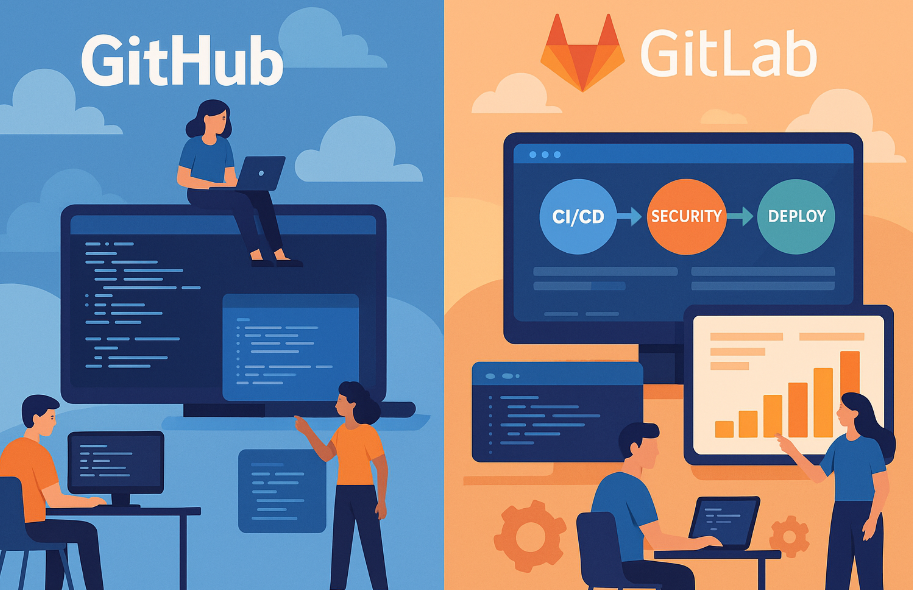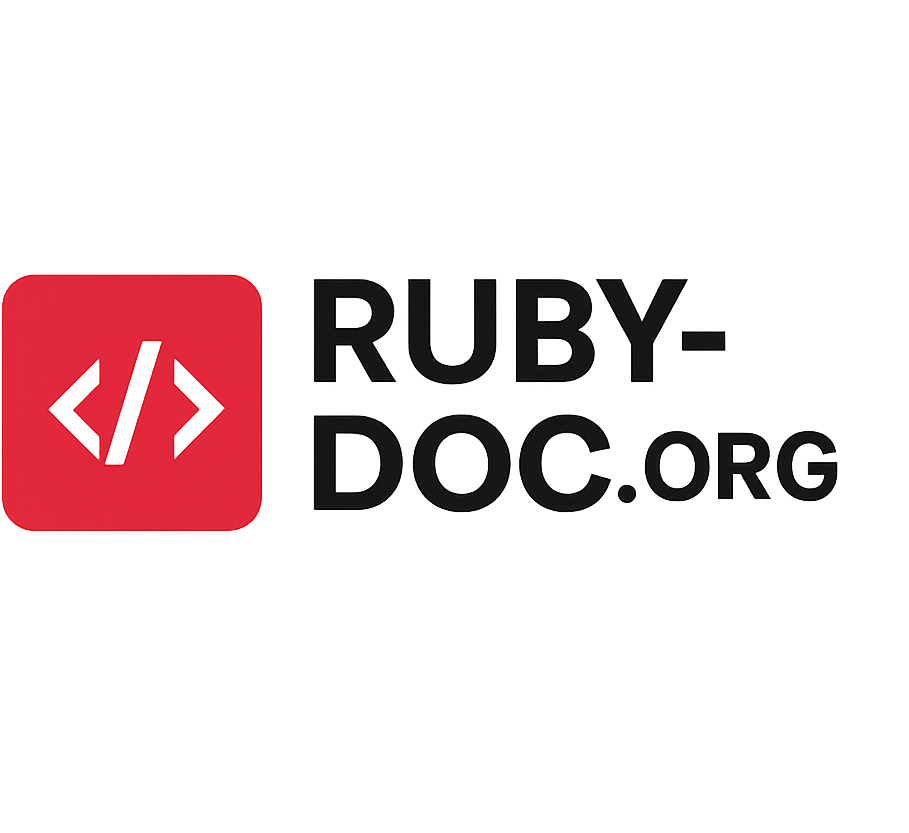
When it comes to modern software development, two platforms dominate the landscape: GitLab vs GitHub. Both offer robust version control and collaboration tools built around Git, but they differ in philosophy, features, integrations, and deployment models. Whether you’re an individual developer, a startup, or an enterprise DevOps team, choosing the right platform can impact your productivity, security, and workflow efficiency.
This article offers a detailed breakdown of GitLab vs GitHub, covering everything from CI/CD pipelines to open-source philosophy, community support, and enterprise capabilities.
GitLab vs GitHub Comparison Table
| Feature | GitLab | GitHub |
|---|---|---|
| Ownership | Independent (GitLab Inc.) | Microsoft-owned |
| Year Launched | 2011 | 2008 |
| Hosting Options | Self-hosted & SaaS | Primarily SaaS, limited self-hosting via GHES |
| CI/CD Built-in | Yes (native) | Limited (GitHub Actions) |
| Open Core | Yes | No (closed source) |
| Issue Tracking | Yes | Yes |
| Wiki | Yes | Yes |
| Project Management | Advanced (Epics, Roadmaps) | Basic (Milestones, Projects) |
| Integrated Security Scanning | Yes (SAST, DAST, etc.) | Partial (via Advanced Security tier) |
| Free Private Repos | Yes | Yes |
| DevOps Lifecycle Integration | Full stack (Code to Deploy) | Partial |
| Marketplace | Moderate | Extensive |
| Community Size | Smaller | Larger |
| Performance on Large Projects | Excellent | Excellent |
| Support for Monorepos | Strong | Moderate |
Understanding GitLab vs GitHub: What Are They?
Both platforms revolve around Git, a distributed version control system. However, GitHub and GitLab provide different ecosystems and value propositions.
What is GitHub?
GitHub is the most widely used platform for Git repositories, boasting over 100 million developers as of 2024. Acquired by Microsoft in 2018, GitHub emphasizes collaboration, open-source contribution, and robust integrations with Azure and third-party tools. GitHub offers:
- GitHub Actions for CI/CD
- GitHub Packages for artifact storage
- Copilot AI for coding assistance
- A vast marketplace with third-party integrations
What is GitLab?
GitLab is a complete DevSecOps platform that offers version control, CI/CD, security scanning, project planning, and monitoring all within a single application. It supports both self-managed and cloud-hosted environments and follows an open-core model. Notable features include:
- Built-in CI/CD pipelines (native, no add-ons needed)
- Advanced security scanning (SAST, DAST, Container scanning)
- Kubernetes integration for cloud-native deployment
- Epic-level project planning
GitLab vs GitHub is not just about Git—it’s about how much of the software lifecycle is handled in one place.
Key Differences Between GitLab vs GitHub
While both platforms support Git, the GitLab vs GitHub debate becomes sharper when diving into core feature sets, hosting options, community models, and DevOps capabilities.
Hosting and Deployment Models
GitHub’s Cloud-First Model
GitHub operates predominantly in the cloud. Enterprise clients can use GitHub Enterprise Server (GHES), but it lacks feature parity with GitHub.com. This limits flexibility for organizations needing strict data control.
GitLab’s Self-Hosted Strength
GitLab offers a robust self-hosted option with full feature parity to GitLab.com. For compliance-heavy or air-gapped environments, GitLab provides unmatched flexibility.
Built-in CI/CD Tools
GitLab: Native and Mature CI/CD
GitLab has CI/CD baked in, enabling teams to build, test, and deploy directly from their Git repositories without third-party tools.
GitHub: GitHub Actions
GitHub introduced Actions in 2019. While powerful, GitHub Actions lacks the deep integration and visual pipeline editor that GitLab provides.
DevOps Lifecycle
GitLab is a true DevSecOps platform, offering features like:
- Planning (Epics, Issues, Roadmaps)
- Source Code Management
- CI/CD
- Security Scanning
- Monitoring
GitHub focuses more narrowly on SCM and CI/CD. Third-party tools are needed for full lifecycle coverage.
Security and Compliance
GitLab Security Suite
GitLab includes:
- Static Application Security Testing (SAST)
- Dynamic Application Security Testing (DAST)
- Dependency scanning
- Container scanning
GitHub Security Tools
GitHub Advanced Security (GAS) offers similar capabilities but requires the Enterprise plan.
User Interface and Developer Experience
Both platforms provide intuitive UIs, but opinions vary:
- GitHub’s interface is more polished and familiar to open-source contributors
- GitLab’s interface is feature-rich and built for full-lifecycle DevOps
GitLab vs GitHub: Which One Has Better Community and Marketplace?
Community Support
- GitHub has the largest developer community and is the default for open-source collaboration.
- GitLab also has a strong, growing community and is more common in enterprise/private repo scenarios.
Extensions and Marketplace
- GitHub’s Marketplace is more extensive, with thousands of integrations.
- GitLab has fewer plugins but makes up for it with native features.
Performance and Scalability: GitLab vs GitHub at Enterprise Scale
Monorepos and Large Projects
Both platforms handle large codebases, but:
- GitLab is preferred in scenarios with complex monorepos.
- GitHub scales extremely well but might require external tools for monorepo management.
Uptime and Reliability
- GitHub has had several high-profile outages, especially in 2020-2022.
- GitLab’s status dashboard indicates a stronger uptime record in self-hosted deployments.
Cost Comparison: GitLab vs GitHub Pricing Models
| Plan Level | GitLab (Monthly/User) | GitHub (Monthly/User) |
| Free | $0 | $0 |
| Premium | $29 | $21 (Team Plan) |
| Ultimate/Enterprise | $99 | $44 (Enterprise Cloud) |
- GitLab Ultimate includes all DevSecOps tools.
- GitHub Enterprise requires additional configuration for full stack DevOps.
GitLab vs GitHub in Open-Source Projects
GitHub is king when it comes to open-source, hosting iconic projects like:
- Linux
- React
- TensorFlow
GitLab is used by open-source projects needing CI/CD integration out-of-the-box or self-hosting.
GitLab vs GitHub: AI Integration and Future Roadmaps
GitHub Copilot
GitHub, via Microsoft, has invested in AI-assisted development through Copilot, powered by OpenAI.
GitLab Duo
GitLab introduced GitLab Duo, its AI-assisted development suite, aiming to enhance code suggestions, documentation, and test generation.
GitLab vs GitHub: Which Should You Choose?
Choose GitLab If You:
- Need full DevSecOps in one platform
- Require self-hosting or hybrid deployments
- Want mature built-in CI/CD tools
- Operate under strict compliance regulations
Choose GitHub If You:
- Prioritize community and collaboration
- Work on open-source projects
- Use Microsoft Azure heavily
- Prefer AI tools like Copilot
Final Verdict: GitLab vs GitHub in 2025
Both platforms are excellent, but they serve different audiences. In 2025, GitLab vs GitHub comes down to this:
- GitHub is the go-to for open-source, Azure-integrated, community-centric development.
- GitLab shines in enterprise-grade, CI/CD-heavy, security-aware environments.
Evaluate your team’s priorities—community, control, cost, compliance—and pick the tool that aligns best. For many, it may even be worth running both platforms side-by-side depending on the use case.
In the fast-moving world of DevOps and software development, the GitLab vs GitHub decision is less about better or worse, and more about alignment with your vision and operational needs.
